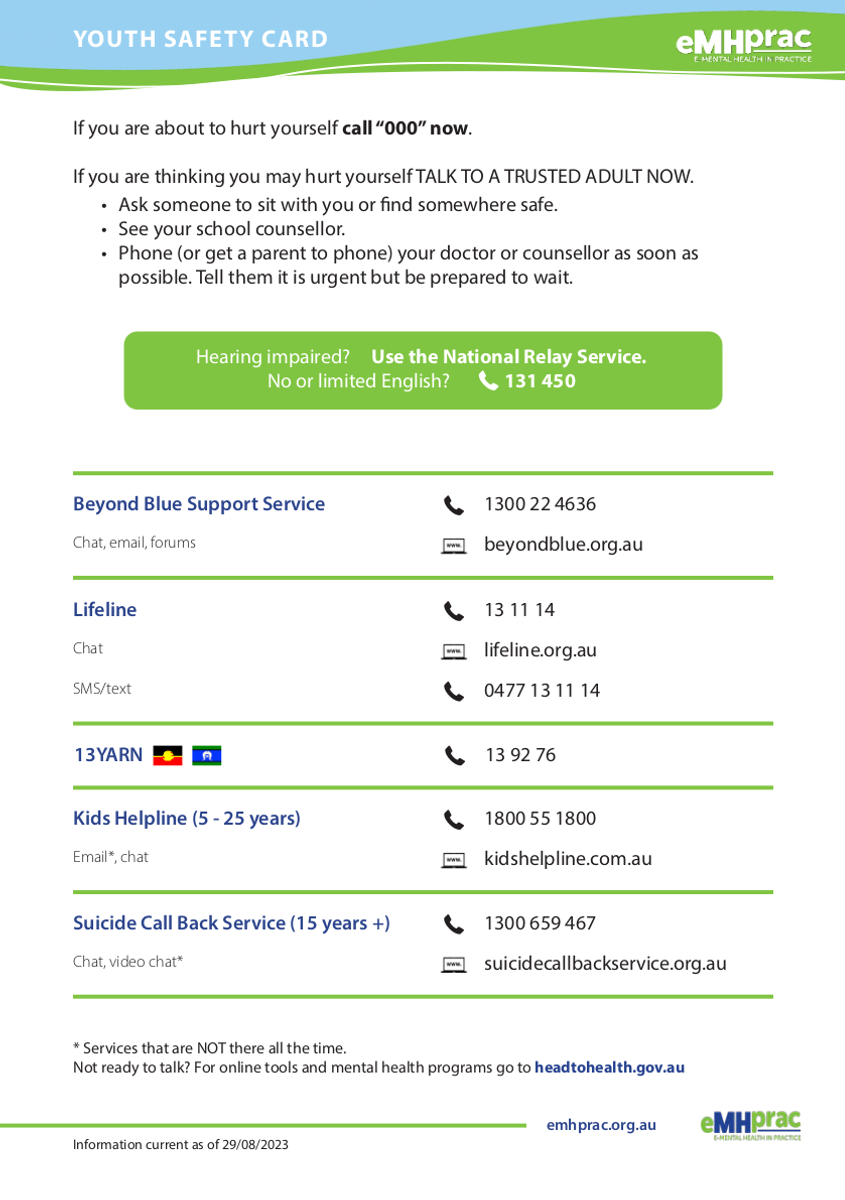Wellbeing News

SLEEP
As families navigate busy schedules and the academic demands of high school life, it's crucial to remember the importance of sleep for our teenagers' overall health and well-being. Adolescents undergo significant physical, cognitive, and emotional changes, making sleep an essential factor in their development and success. Sleep is essential for good mental and physical health. Sleep deprivation contributes to a whole range of issues.
Understanding Teenage Sleep Needs:
Teenagers require between 8 to 10 hours of sleep per night for optimal functioning. However, various factors such as academic pressures, extracurricular activities, social engagements, and screen time often interfere with their ability to achieve adequate rest. Furthermore, hormonal changes during adolescence can shift the body's internal clock, making it challenging for teens to fall asleep early and wake up refreshed.
Strategies for Good Sleep:
Establish a Consistent Sleep Schedule: Encourage your teenager to go to bed and wake up at the same time every day, even on weekends. Consistency helps regulate their body's internal clock, making it easier to fall asleep and wake up naturally.
Create a Relaxing Bedtime Routine: Engage in calming activities before bedtime, such as reading a book, taking a warm bath, or practicing relaxation techniques like deep breathing or meditation. Avoid stimulating activities like video games or scrolling through social media, as these can interfere with sleep quality.
Limit Screen Time Before Bed: The blue light emitted by electronic devices can disrupt the production of melatonin, the hormone responsible for regulating sleep-wake cycles. Encourage your teenager to power down their devices at least an hour before bedtime and establish a screen-free zone in their bedroom.
Create a Comfortable Sleep Environment: Ensure that your teenager's bedroom is conducive to sleep by keeping it cool, dark, and quiet. Invest in a comfortable mattress and pillows that provide adequate support, and consider using white noise machines or earplugs to block out any disruptive sounds.
Encourage Regular Exercise: Physical activity during the day can promote better sleep at night. Encourage your teenager to engage in regular exercise, whether it's playing sports, going for a walk, or participating in a fitness class.
Watch Caffeine Intake: Limit your teenager's consumption of caffeinated beverages, especially in the afternoon and evening. Caffeine can interfere with sleep and contribute to feelings of restlessness or insomnia.
The Fundamentals of Good Sleep Hygiene:
In addition to the strategies mentioned above, cultivating good sleep hygiene practices can help teenagers establish healthy sleep habits for life. Good sleep hygiene includes:
Avoiding large meals, caffeine, and heavy exercise close to bedtime.
Creating a comfortable sleep environment that is free from distractions.
Using the bedroom for sleep only, avoiding activities like studying or watching TV in bed.
Seeking professional help if sleep problems persist despite implementing these strategies.
Mental health benefits of good sleep:
Sleep helps our brain to work properly. While we're sleeping, our brain is getting ready for the next day. It's forming new pathways to help us learn and remember information.
Studies show that a good night's sleep improves learning and problem-solving skills. Sleep also helps us pay attention, make decisions, and be creative.
Studies also show that sleep deficiency changes activity in some parts of the brain. If we're sleep deficient, we may have trouble making decisions, solving problems, controlling our emotions and behaviour, and coping with change. Sleep deficiency has also been linked to depression, suicide, and risk-taking behaviour.
Children and teens who are sleep deficient may have problems getting along with others. They may feel angry and impulsive, have mood swings, feel sad or depressed, or lack motivation. They also may have problems paying attention, and they may get lower grades and feel stressed.
Physical health benefits of good sleep
Good-quality sleep:
Heals and repairs our heart and blood vessels.
Helps support a healthy balance of the hormones that make us feel hungry (ghrelin) or full (leptin): When we don't get enough sleep, our level of ghrelin goes up and our level of leptin goes down. This makes us feel hungrier than when we're well-rested.
Affects how our body reacts to insulin: Insulin is the hormone that controls our blood glucose (sugar) level. Sleep deficiency results in a higher-than-normal blood sugar level, which may raise our risk of diabetes.
Supports healthy growth and development: Deep sleep triggers the body to release the hormone that promotes normal growth in children and teens. This hormone also boosts muscle mass and helps repair cells and tissues in children, teens, and adults. Sleep also plays a role in puberty and fertility.
Affects our body’s ability to fight germs and sickness: Ongoing sleep deficiency can change the way our body’s natural defence against germs and sickness responds. For example, if we're sleep deficient, we may have trouble fighting common infections.
Decreases our risk of health problems, including heart disease, high blood pressure, obesity, and stroke.
Unfortunately, many of our students are reporting that they have very little sleep – many of them gaming, using phones, and social media until all hours of the night/early morning. Some of our students are trying to function with as little as 2 hours of sleep. This is not conducive to learning, socialising, or behaving appropriately at school. By prioritising sleep and supporting children and teens to implement the strategies above, hopefully we can help them to thrive physical, academically, and mentally.
Youth Safety Card

